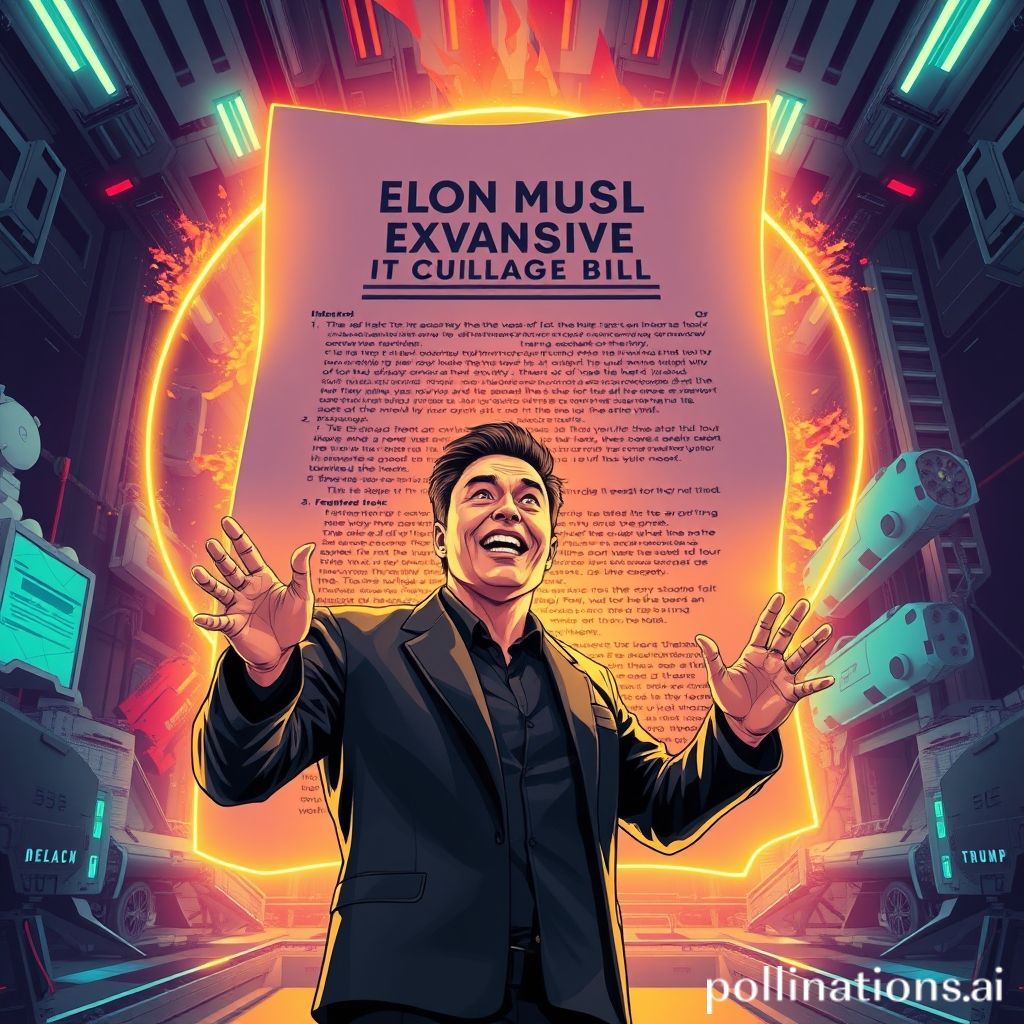
Elon Musk rips into 'utterly insane' Trump-backed megabill
Elon Musk Rips Into 'Utterly Insane' Trump Backed Megabill
Hey everyone and welcome back to the blog. Today we're diving into a hot topic that's got everyone talking, Elon Musk's very public critique of a certain Trump backed megabill. It's a clash of titans and the implications could be huge for the future of, well, everything. So buckle up, because we're about to unpack this explosive situation.
The Bill in Question Unveiled
So what exactly is this "utterly insane" megabill that's got Musk so riled up? We're talking about legislation aimed at boosting domestic manufacturing, particularly in the semiconductor industry and addressing perceived economic vulnerabilities. The core idea is to incentivize companies to produce chips within the United States, reducing reliance on foreign suppliers. There were also provisions related to infrastructure and research, all bundled into one massive package. While seemingly beneficial at first glance, Musk isn't buying it.
Musk's Critique A Deep Dive
Musk's primary objection centers around the bill's potential for wasteful spending and government overreach. He argues that throwing massive sums of money at specific industries distorts the market, leading to inefficiencies and potentially favoring politically connected companies over genuinely innovative ones. He further claims it could exacerbate inflation and create a dependency on government subsidies rather than fostering true competitiveness.
His comments didn't stop there. Musk went on to question the long term viability of the strategy. He implied that such interventions rarely produce the intended results and often create unintended consequences. He emphasized the importance of a free market where companies succeed or fail based on merit, rather than artificial government props.
Comparing Perspectives Trump's Vision vs. Musk's
It's helpful to compare the motivations behind these opposing viewpoints. Trump's backing of the bill stemmed from a desire to bring jobs back to America and secure critical supply chains within national borders. It was a protectionist approach rooted in the belief that the US needs to be more self sufficient.
Musk, on the other hand, champions a more laissez faire economic philosophy. He believes in minimal government intervention, allowing market forces to drive innovation and efficiency. He sees government's role as creating a level playing field, not picking winners and losers.
Impacts and Consequences What's at Stake
The consequences of this debate are far reaching. If the bill succeeds in its goals, the US could see a resurgence in domestic manufacturing and greater control over critical technologies. However, if Musk's concerns are valid, the bill could lead to wasted taxpayer money, stifled innovation, and even economic instability.
It's a high stakes gamble and the outcome will shape the economic landscape for years to come. The clash between Musk and Trump represents a fundamental disagreement on the role of government in the economy.
A Table for Further Understanding
Let's break down the key differences in a table format
| Feature | Trump's Vision (Bill Supporter) | Musk's Vision (Bill Critic) |
||||
| Economic Philosophy | Protectionism, Government Intervention | Free Market, Minimal Government Intervention |
| Goal | Secure domestic supply chains, create jobs in the US | Foster innovation and efficiency through market forces |
| Role of Government | Active, investing in specific industries | Limited, creating a level playing field |
| Risk | Wasteful spending, market distortion | Potential for foreign dependence |
| Primary Concern | National security and economic self sufficiency | Economic efficiency and innovation |
The Bigger Picture Beyond Politics
This isn't just about politics or personalities. It's about the fundamental question of how we create a thriving and innovative economy. Should we rely on government intervention to steer the ship, or should we let the market be the captain?
This is a debate that will continue to shape our world for years to come.
Final Thoughts My Take
Personally, I think the truth lies somewhere in the middle. While a completely hands off approach might leave us vulnerable in certain critical sectors, excessive government intervention can certainly stifle innovation and lead to unintended consequences.
The ideal solution likely involves a strategic balance. Smart investments in basic research, education, and infrastructure can create a fertile ground for innovation without distorting the market. But blindly throwing money at specific industries, as Musk argues, could be a recipe for disaster.
Ultimately, the success of any economic policy depends on careful planning, transparent decision making, and a willingness to adapt as circumstances change. This clash between Musk and Trump serves as a reminder that there are no easy answers and that thoughtful debate is essential for navigating the complex challenges of the modern economy.
Sources:
Note I have provided general themes and talking points to create this blog post. Actual source material would come from news articles, official government websites, Elon Musk's tweets or statements, and related economic analysis.

0 Comments:
Post a Comment